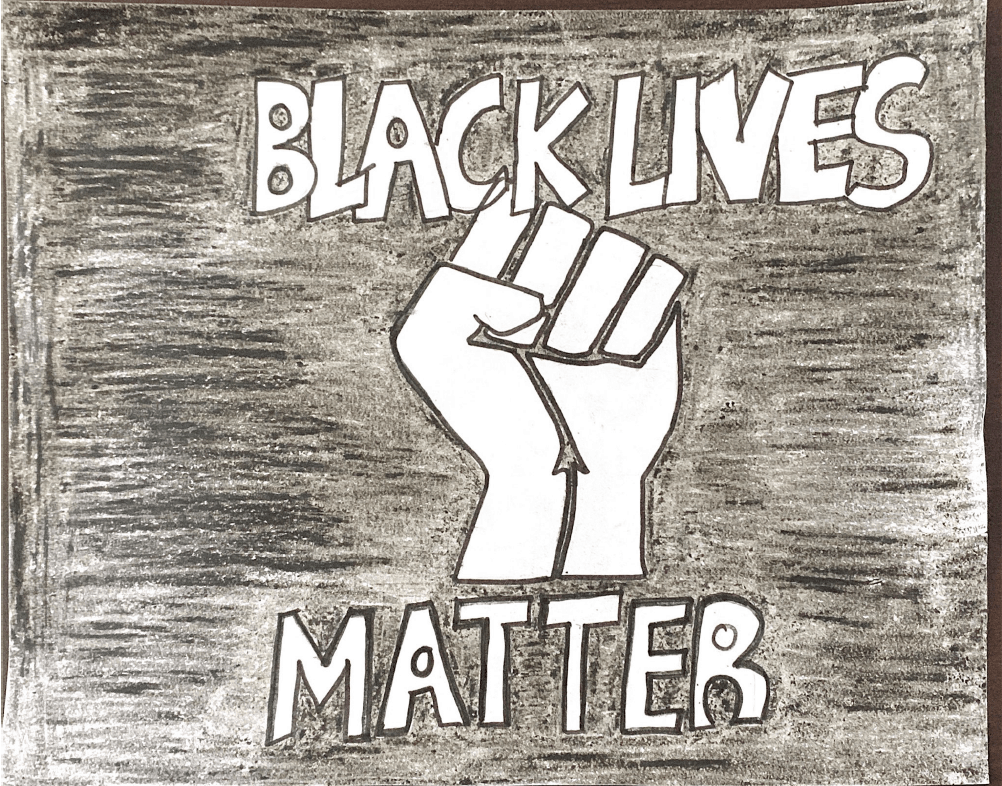
The death of George Floyd is the symptom of the malignant diseases of racism and police brutality. This act and the police officers that committed it spread darkness and hate and dehumanize Black lives.
It is disheartening to learn that even after eight years of a Black president leading the United States, racism exists to such a devastating extent that a cop commits second-degree murder by placing his knee on the victim’s neck.
We must recognize the barriers Black people face and provide opportunities based on their talent, skills, and capability — not the colour of their skin. We must remember that Black lives matter.
By educating ourselves and increasing our awareness of the history of racism around the world, we can improve our understanding of the change that needs to happen. We can contribute to addressing racism by supporting and donating to Black-owned organizations, signing petitions, showing up to the protests and continuing to learn and listen. We need to work to ensure that Black lives are respected in our society.
I want to pay my tribute to a few, among many Black people, who have made enormous contributions to this world. Some have demonstrated excellence and kindness and others have shown grit, resilience and hard work.
These people struggled in the face of racism but persevered through it. It is important to learn about these Black leaders to set an example for the younger generation that despite whatever they are facing, it is important to persevere and fight for their dreams.
If George Floyd had lived, he, all his children, his grandchildren or his great-grandchildren could have been any of these legends.
Nelson Mandela
Mandela inspires me due to his perseverance and his beliefs regarding activism and philanthropy. He was the son of a local tribal leader and grew up to become a lawyer. During his university years, he learnt about racial inequality and injustice faced by people of colour, which persuaded him to join the African National Congress to participate in the struggle against racial injustice.
Mandela was arrested on charges for treason and plans to overthrow the government. After being released from over 20 years in prison, he was elected President of South Africa which shows that patience and perseverance can help one achieve their dreams.
Barack Obama
I grew up hearing Obama’s speeches on hope, optimism and prosperity. He had a difficult childhood as he was abandoned by his father and was raised by his grandparents. After receiving a law degree from Harvard, he worked as a civil rights lawyer.
In 2008, he became the first Black US president. In the face of racism, he was a huge symbol of diversity, equality and justice. His achievements, including a Nobel Peace Prize in 2009 for his work to maintain international peace and security, to me are symbols of justice, cooperation, hope and optimism.
Michael Jordan
As a child, I enjoyed playing basketball and wanted to play just like Michael Jordan did. During high school, he struggled to get on his school’s basketball team due to his short height. However, he persisted and was later picked in the NBA drafts while playing for his university. His unique style of playing led him to become one of the best players in the game.
His humility made him popular in the public. Jordan and his team broke many NBA records along with winning Olympic gold in 1984 and 1992. His achievements are the gold standard of athletic excellence and they inspired me to play basketball for a long time.
Bob Marley
Bob Marley was immensely proud of his roots, culture and heritage — which is where I find commonality with him. Growing up in poverty, Marley found peace and inspiration in music around him. He spread the idea of reggae music around the world, becoming the first international superstar from a developing country. He, along with his friends, formed Wailing Wailers and sold more than 20 million albums.
Furthermore, he was a strong believer of the Rastafarian movement, a 1930s religious movement in Jamaica that drew inspiration from African culture and heritage while advocating for equal rights and justice. His passion for music, religion and culture made him popular among Africans as well as internationally.
Frederick Douglass
Frederick Douglass has taught me the importance of fighting for your rights and what you believe in. He experienced the impact of slavery as a child, as his mother was a slave who died when Douglass was ten years old. Growing up, he believed that slavery would not stop him from achieving freedom and education.
After escaping to free, he participated in anti-slavery campaigns and shared his experiences in his autobiography. The autobiography became a bestseller, inspired many people, and was translated in different languages.
—
Sakshi Goyal
Graphic: Divya Goyal
Leave a Reply